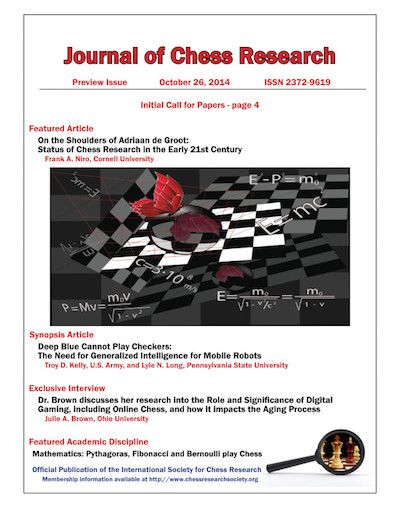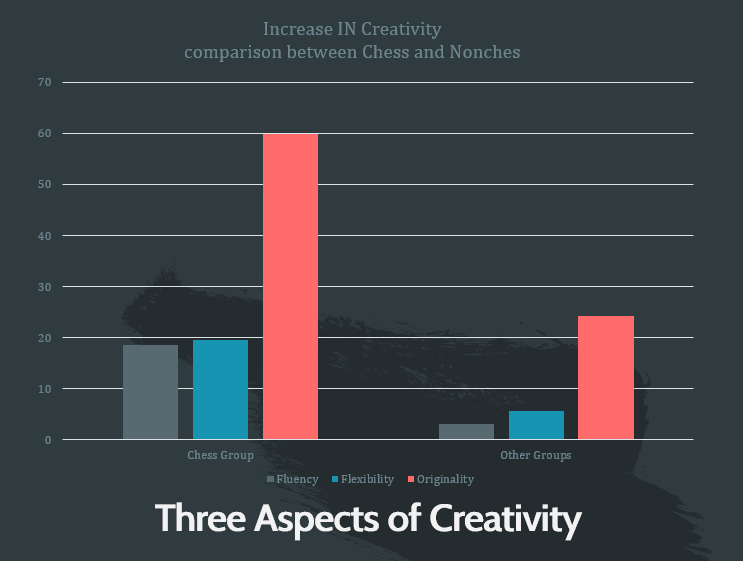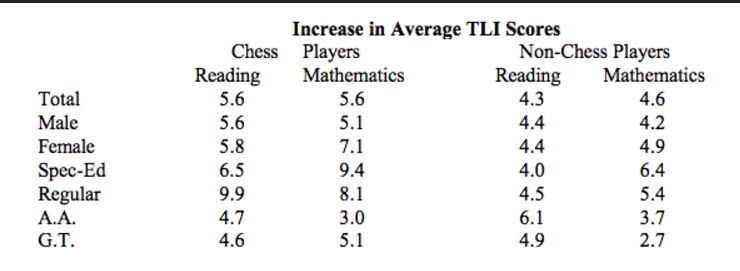Exploring the Impact ofChess on Education:A Collection of Research Studies
Dec 06th, 2024
Where Can Educators Find Research on the Educational Value of Chess?
Many educators seek reliable studies on how chess benefits learning. This article compiles key research on chess education, thanks to contributions from Dr. Robert Ferguson, who has conducted several studies himself.
Highlights:
•A 2019 Alabama study found chess boosts test scores and school engagement, especially in younger grades, with teachers also reporting increased job enthusiasm.

•Research from New Mexico revealed chess education improves math and reading scores, with math scores jumping 7%, and an incredible 28% boost when students competed in tournaments.
For a collection of recent chess studies, check out this compilation from the Chess Club and Scholastic Center of Saint Louis, as well as another from the U.S. Chess Federation. One study revealed that gifted students (with an IQ above 130) who participated in chess outperformed those who engaged in alternative activities, such as computer learning, during the same period. It’s important to note that there was no formal “control” group; the non-chess participants simply engaged in different activities.
For a collection of recent chess studies, check out this compilation from the Chess Club and Scholastic Center of Saint Louis, as well as another from the U.S. Chess Federation. One study revealed that gifted students (with an IQ above 130) who participated in chess outperformed those who engaged in alternative activities, such as computer learning, during the same period. It’s important to note that there was no formal “control” group; the non-chess participants simply engaged in different activities.
This study was unique in that chess was taught or played daily throughout an entire school year, starting with students who had no prior knowledge of the game. It also involved a broader range of children, with an average IQ just above 100. The results highlighted the differences in progress between girls and boys. The two benchmarks used for assessment were the “Test of Cognitive Skills” (measuring memory) and the “California Achievement Test” (measuring verbal reasoning). By the end of the school year, the chess group showed significant improvements in memory percentiles, while also achieving modest gains in verbal reasoning.

Another study, with a larger control group of four schools, focused on the effects of afterschool chess clubs and spanned multiple years. This study also analyzed gains across different educational groups, such as gifted and talented, and special education students. Using scores from the Texas Assessment of Academic Skills, nearly all the chess groups showed greater progress compared to their non-chess peers, with especially notable improvements seen in both regular and special education students.
This study examined the impact of chess on reading scores (full disclosure: I taught at Chess-in-the-Schools in New York City from 2001-2004, the organization later known as the American Chess Foundation). The study was conducted over two years in the Bronx, where many of the instructors were professional chess teachers, some of whom were masters (including future GM Maurice Ashley, who contributed to the program). Participation in the chess program was voluntary.

In summary, out of the 22 students tracked, 15 showed an improvement in their reading percentile scores by the end of two years, while 7 saw a decline. In contrast, the larger control group had 491 students who improved and 627 who declined. For the chess group, reading scores began at the 58th percentile in 3rd grade and increased to the 63rd percentile by 5th grade.
The study offers several hypotheses on how chess might contribute to improved reading, including boosting general intelligence, concentration, self-esteem, and other potential factors.
Additional resources:
•A summary of current and past chess research studies in the United Kingdom.
•The Journal of Chess Research, which compiles studies on various aspects of chess and its use as an educational tool.

Source by: Journal Of Chess Research
© The Madras School of Chess
Created by Webdzo